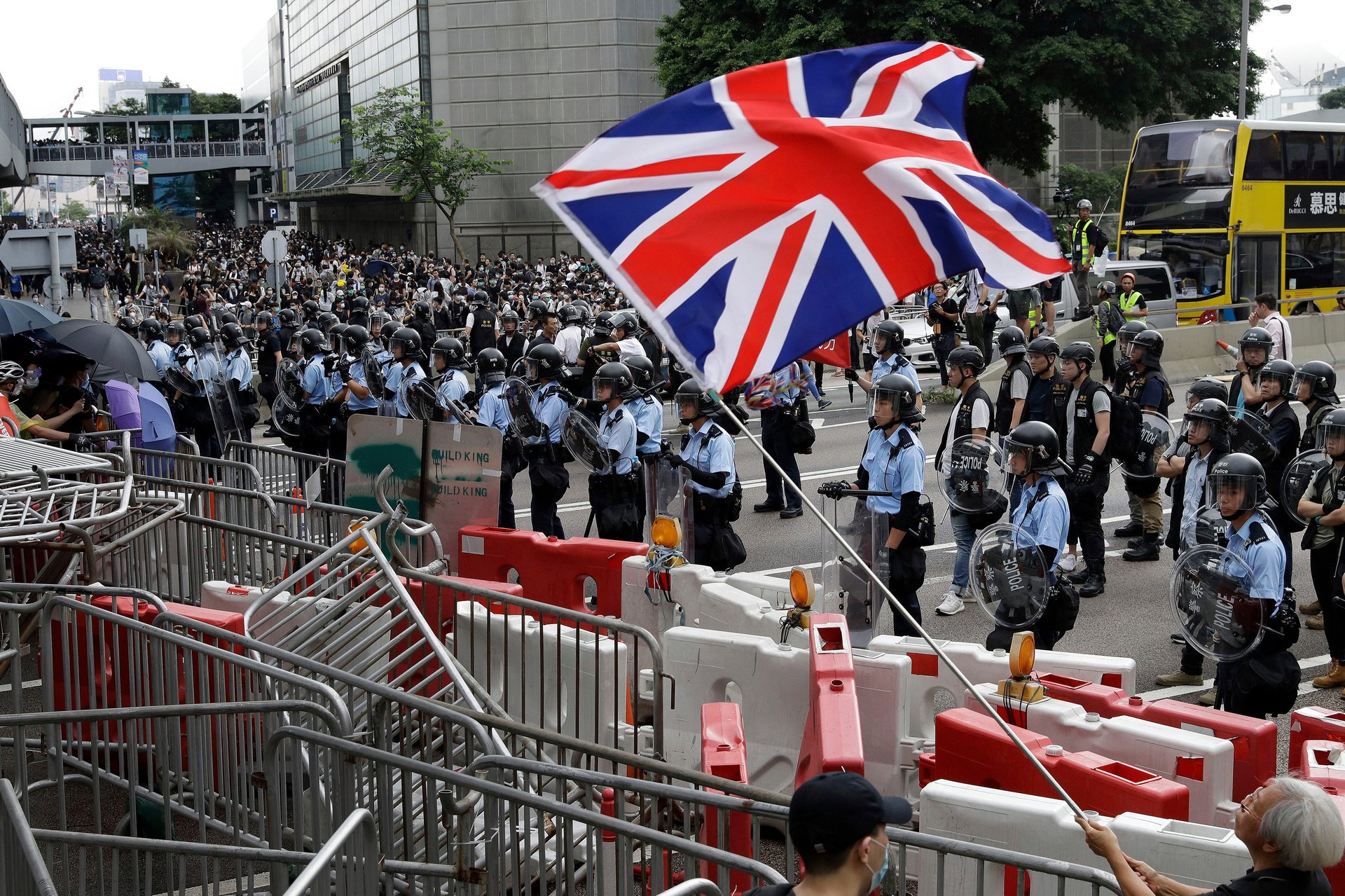Why foreign governments are so worried about Hong Kong’s extradition law
Around the world, from the US to Japan, governments have made clear that Hong Kong should shelve, or at the very least postpone, the controversial extradition bill that has brought sparked some of the worst political unrest in the city in decades. They see the bill as a clear sign of China’s encroachment on the city’s freedoms that threatens to expose its citizens—and its large population of foreign residents—to rendition to China.


Around the world, from the US to Japan, governments have made clear that Hong Kong should shelve, or at the very least postpone, the controversial extradition bill that has brought sparked some of the worst political unrest in the city in decades. They see the bill as a clear sign of China’s encroachment on the city’s freedoms that threatens to expose its citizens—and its large population of foreign residents—to rendition to China.
The bill would allow the extradition of suspects from Hong Kong to face trial in the mainland—something that hasn’t been possible since the city passed from British rule to Chinese sovereignty in 1997. The law’s reach could also extend to foreigners living in or passing through Hong Kong. Tens of thousands of foreign nationals work in both white-collar and blue-collar jobs in the cosmopolitan financial hub.
Yesterday (June 13), US lawmakers re-introduced the bipartisan Hong Kong Human Rights and Democracy Act, which among other things would require the State Department to assess Hong Kong’s autonomy annually to justify continuing the special trade status the US affords it, given its legal system and business rules are distinct from mainland China’s. Earlier this week, House speaker Nancy Pelosi made a statement denouncing the extradition bill as “horrific,” saying that it “imperils the strong U.S.-Hong Kong relationship that has flourished for two decades.” Her comments came after the State Department expressed “grave concern” about the proposed law.
Canada minister of foreign affairs Chrystia Freeland expressed concerns over the potential effect that the extradition law may have “on the large number of Canadian citizens in Hong Kong, on business confidence, and on Hong Kong’s international reputation.” Since the December arrest of Meng Wanzhou, CFO of Chinese telecom giant Huawei, in Canada at the US’s request, there have been fears of Chinese retaliation against Canadians. Indeed, two Canadians have been formally arrested in China this week after months of detention.
The UK’s foreign secretary, Jeremy Hunt, on Wednesday (June 12) urged Hong Kong’s government to preserve the city’s rights and freedoms and uphold the principle of “one country, two systems,” a form of governance in which Hong Kong is given a high degree of independence from China in its political, economic, and judicial matters. On Monday (June 10), minister for Asia Mark Field similarly criticized the extradition bill for endangering the rule of law in Hong Kong.
Germany’s foreign federal office noted that it is examining whether the current bilateral extradition agreement it has with Hong Kong can continue if the proposed law in its current form is enacted. The European Union echoed that sentiment, warning of the “potentially far-reaching consequences for Hong Kong and its people, for EU and foreign citizens, as well as for business confidence in Hong Kong” should the law be adopted.
Taiwan, meanwhile, has been the most outspoken critic of Hong Kong’s extradition law. Its president, Tsai Ing-wen, has on multiple occasions across different social media platforms expressed her support for Hong Kong’s protesters and her dismay at the government’s response. Taiwan’s foreign minister Joseph Wu also backed protesters in Hong Kong.
For Taiwan, Hong Kong is a cautionary tale of China’s tightening grip and a taste of what a unified future with China may look like. “Today Hong Kong, Tomorrow Taiwan” has become a rallying cry for Taiwanese in recent years, according to T.C. Chang, a cultural commentator in Taipei who previously lived in Hong Kong.
Japan’s foreign minister, Taro Kono, has also spoken out, as has Australia’s foreign minister Marise Payne.
China has denounced any form of foreign intervention, saying Hong Kong’s matters are China’s internal affairs.